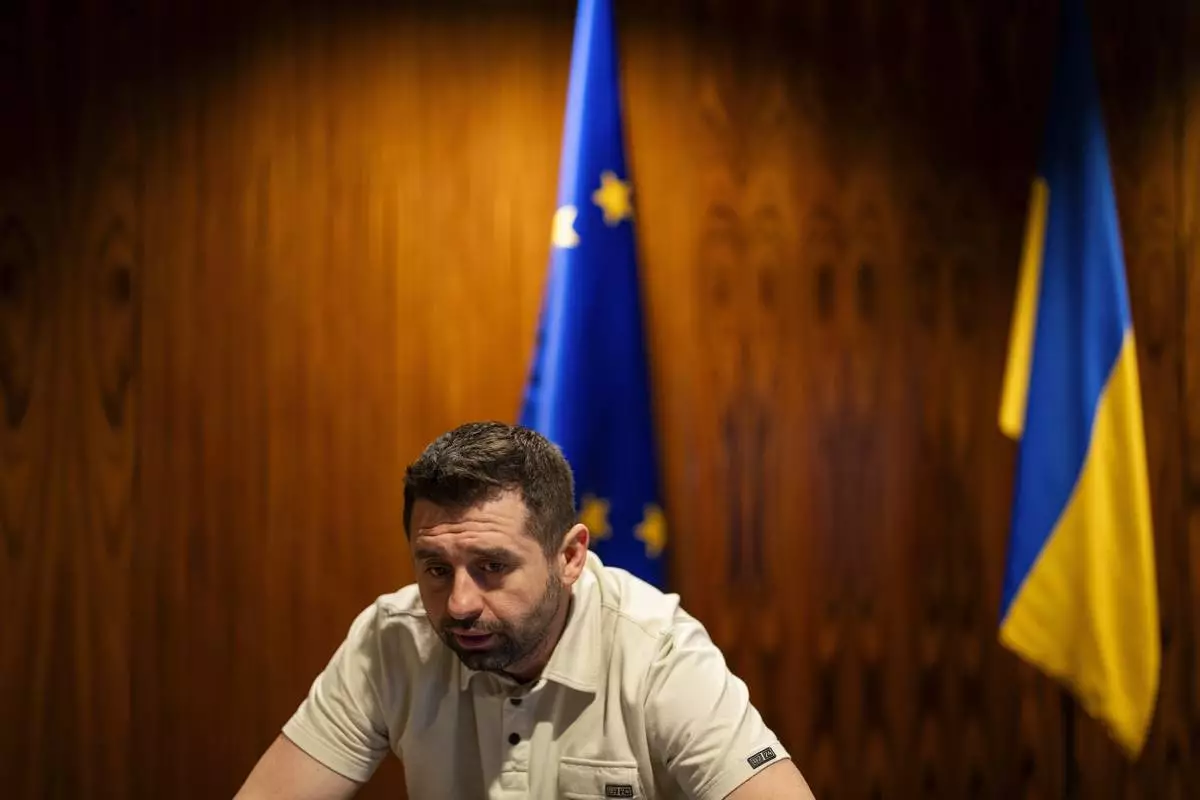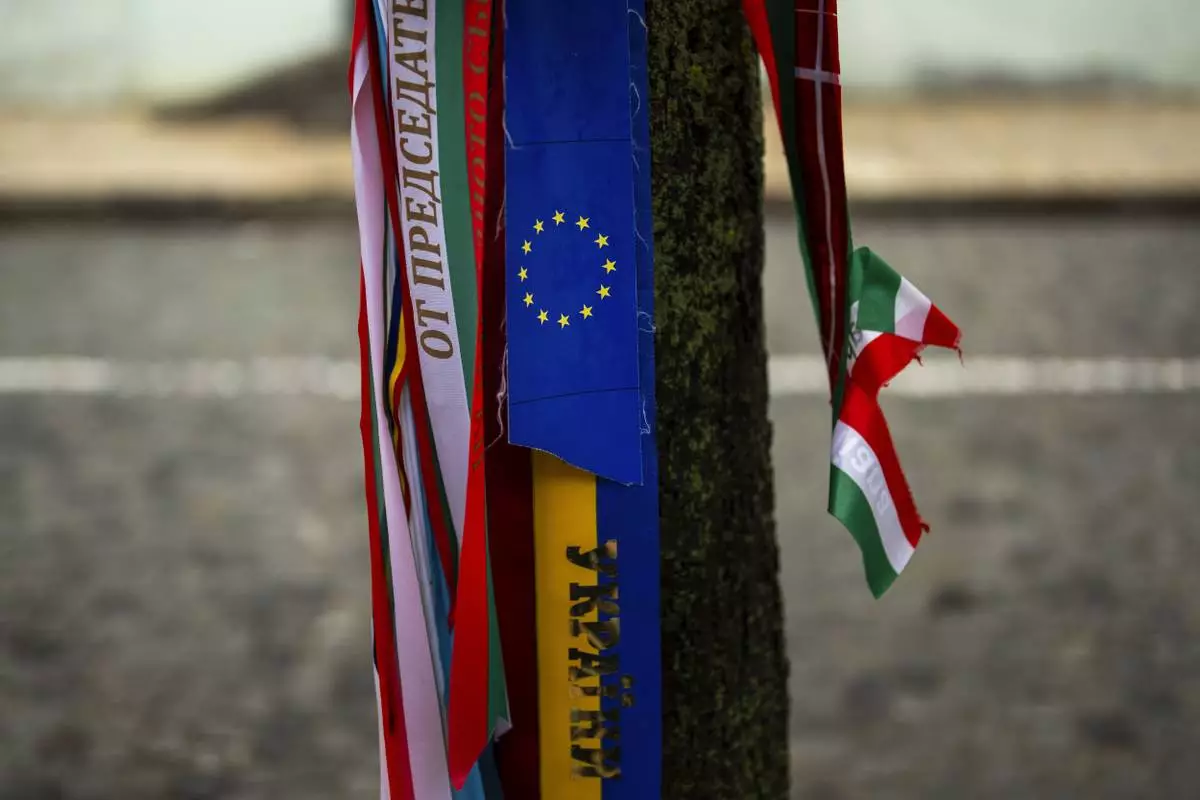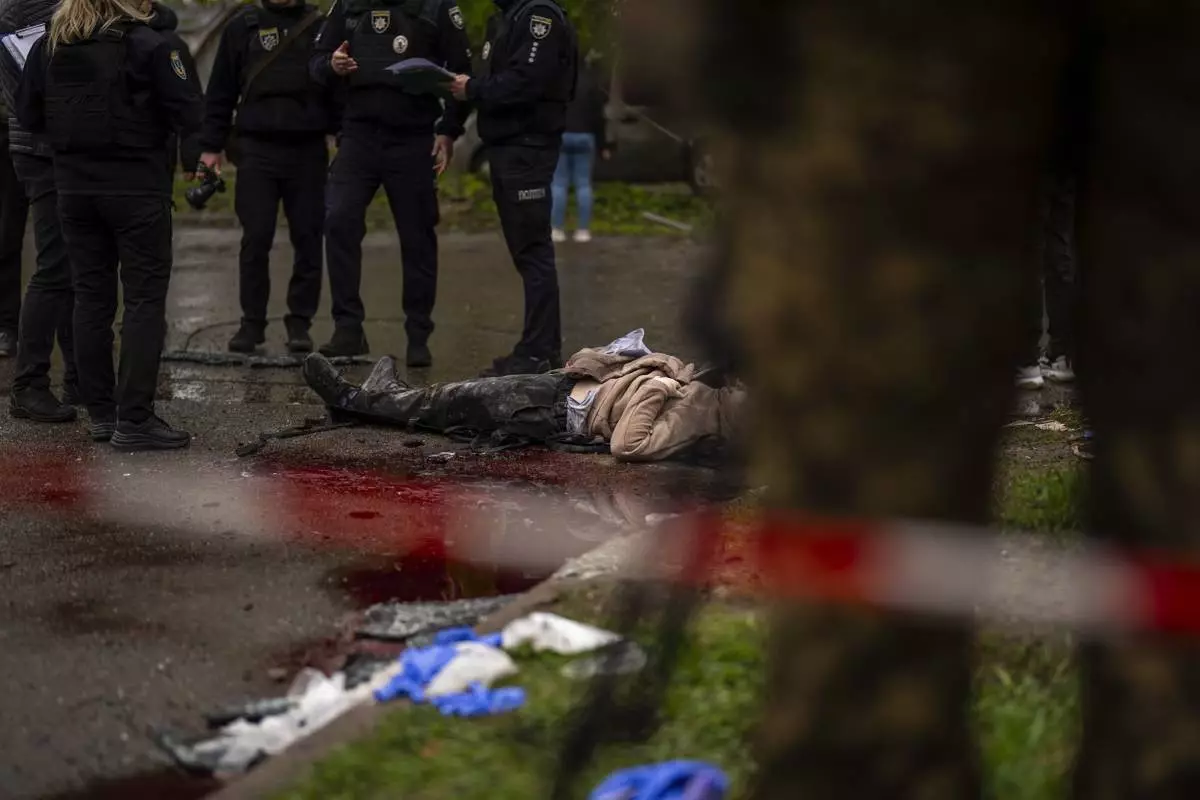An environmental group has denounced a House oversight committee for suggesting the organization's efforts to block construction of a U.S. military base on the southern Japanese island of Okinawa may require it to register as foreign agent.
In a bluntly worded letter delivered earlier this week, the Center for Biological Diversity accused the Republican chairman and another senior GOP member of the Natural Resources Committee of pursuing a "politically motivated abuse of authority" and for operating outside of their jurisdiction. The environmental group has been part of a long-running fight to protect an endangered marine mammal.
The harsh response from the Center for Biological Diversity, headquartered in Arizona, is the group's latest salvo at the panel, which is investigating whether nonprofit groups are being manipulated by foreign governments or entities that want to undercut U.S. interests. The committee didn't provide a comment on the letter. But a GOP congressional aide who wasn't authorized to speak publicly and requested anonymity called it unproductive.
At the center of the fight is the Foreign Agents Registration Act, an 80-year-old law that requires people to disclose when they lobby in the U.S. on behalf of foreign governments or political entities. For decades, the statute languished in obscurity and criminal prosecutions under the law were exceedingly rare.
But Special Counsel Robert Mueller's Russia probe pushed the law, known as FARA, into the spotlight, as his team of prosecutors revealed how foreign parties often work unnoticed to sway political agendas and shape public thinking. Former Trump campaign chairman Paul Manafort recently admitted he'd failed to register as a foreign agent when he directed a multi-million dollar lobbying operation for Ukrainian interests.
Still, it's unusual to see the law wielded by a committee primarily responsible for overseeing the government's stewardship of public lands, energy production, wildlife and other natural resource matters.
The focus on the foreign lobbying law also represents a new point of contention between the GOP and many environmentalists who are at odds over the Trump administration's push to undo Obama-era programs to fight climate change.
Reps. Rob Bishop of Utah, the committee chairman, and Bruce Westerman of Arkansas, who heads the panel's oversight and investigations subcommittee, have written letters over the last few months to the Center for Biological Diversity and three other environmental groups — the Natural Resources Defense Council, the World Resources Institute, and Earthjustice — to inform them of the inquiry.
The lawmakers demanded a wide range of internal documents about the groups' operations to include their relationships and transactions with foreign governments or businesses. The Natural Resources Defense Council, for example, was told to produce records related to its work in China, where it has a sizeable presence, and that would show whether or not it registered "as an agent of a foreign principal."
The NRDC, according to the lawmakers, consistently praises the Chinese government's environmental initiatives while withholding criticism of Beijing. By contrast, the group takes an "adversarial approach to its advocacy practices in the United States," particularly since President Donald Trump's election.
NRDC spokesman Jake Thompson declined to provide a copy of the organization's response to the committee or describe what information was He emailed a statement from Bob Deans, NRDC's director of strategic engagement, who denied the group takes any direction from the Chinese government.
The World Resources Institute said in a statement "there are no merits to this House inquiry." Earthjustice, which keeps a running tally on its web site of environment-related lawsuits it's filed against the Trump administration — 111 at last count — said it's confident that it doesn't need to be registered as a foreign agent. Like NRDC, both organizations declined to share their written replies to the committee.
The Center for Biological Diversity, however, isn't holding back. It's tangled with the committee from the start, challenging its authority to conduct an inquiry dealing with the foreign lobbying law. That's the Judiciary Committee's jurisdiction, the group has argued. The GOP aide said the committee is keeping Judiciary and other congressional committees apprised of its probe.
The committee's interest in the Center for Biological Diversity stems from the group's efforts to protect a manatee-like animal called the dugong that's associated with traditional creation myths in Japan. Environmentalists say the construction of two aircraft runways as part of a base relocation plan on Okinawa will destroy the dugong's critical feeding grounds and habitat. In early August, however, a federal judge threw out a lawsuit that challenged the plan.
Bishop and Westerman said the Center for Biological Diversity appears to have engaged in political activities on behalf of "foreign anti-base activists, environmental groups, and members of the Okinawan government opposed to the U.S. military's presence" on the southern Japanese island, according to a seven-page letter they sent to the group in late June.
The lawmakers pointed to the group's assistance in organizing the visit of an Okinawan delegation to the United States and its participation in an extensive publicity campaign condemning the base relocation.
Kieran Suckling, the Center for Biological Diversity's executive director, responded a week later, denying any foreign control over the group's work and declaring that the center wouldn't be intimidated "by crude political bullying tactics."
In Mid-September, Bishop and Westerman called for documents. Suckling wrote back Oct. 17, addressing the letter to Bishop and Rep. Raul Grijalva, the committee's top ranking Democrat. He said the group would not be providing any further information unless it was at an open hearing.
"The attempts to mislead the public through vague insinuations and innuendo about the center and its staff do not serve the public interest," he wrote.
Contact Richard Lardner on Twitter at http://twitter.com/rplardner
KYIV, Ukraine (AP) — A big, new package of U.S. military aid will help Ukraine avoid defeat in its war with Russia. Winning will still be a long slog.
The arms and ammunition in the $61 billion military aid package should enable Ukraine to slow the Russian army's bloody advances and block its strikes on troops and civilians. And it will buy Ukraine time — for long-term planning about how to take back the fifth of the country now under Russian control.
“Ultimately it offers Ukraine the prospect of staying in the war this year,” said Michael Clarke, visiting professor in war studies at King’s College London. “Sometimes in warfare you’ve just got to stay in it. You’ve just got to avoid being rolled over.”
The U.S. House of Representatives approved the package on Saturday after months of delays by some Republicans wary of U.S. involvement overseas. It was passed by the Senate on Tuesday, and President Joe Biden said he would sign it Wednesday.
The difference could be felt within days on the front line in eastern and southern Ukraine, where Russia’s much larger army has been slowly taking territory against massively outgunned Ukrainian forces.
The aid approval means Ukraine may be able to release artillery ammunition from dwindling stocks that it has been rationing. More equipment will come soon from American stocks in Poland and Germany, and later from the U.S.
The first shipments are expected to arrive by the beginning of next week, said Davyd Arakhamia, a lawmaker with Ukrainian President Volodymyr Zelenskyy’s Servant of the People party.
But opposition lawmaker Vadym Ivchenko, a member of the Ukrainian parliament’s National Security, Defense and Intelligence Committee, said logistical challenges and bureaucracy could delay shipments to Ukraine by two to three months, and it would be even longer before they reach the front line.
While details of the shipments are classified, Ukraine’s most urgent needs are artillery shells to stop Russian troops from advancing, and anti-aircraft missiles to protect people and infrastructure from missiles, drones and bombs.
What’s coming first is not always what front-line commanders need most, said Arakhamia, the Ukrainian lawmaker. He said that even a military giant like the U.S. does not have stockpiles of everything.
“The logic behind this first package was, you (the U.S.) finds our top priorities and then you see what you have in the warehouses,” Arakhamia said. “And sometimes they do not match.”
Hope for future breakthroughs for Ukraine still hangs on more timely deliveries of Western aid, lawmakers acknowledge.
Many experts believe that both Ukraine and Russia are exhausted by two years of war and won’t be able to mount a major offensive — one capable of making big strategic gains — until next year.
Still, Russia is pushing forward at several points along the 1,000-kilometer (600-mile) front, using tanks, wave after wave of infantry troops and satellite-guided gliding bombs to pummel Ukrainian forces. Russia is also hitting power plants and pounding Ukraine’s second-largest city, Kharkiv, which is only about 30 kilometers (some 20 miles) from the Russian border.
Ivchenko said the goal for Ukraine’s forces now is to “hold the line” until the bulk of new supplies arrive by mid-summer. Then, they can focus on trying to recapture territory recently lost in the Donetsk region.
“And probably ... at the end of summer we’ll see some movement, offensive movement of the Ukrainian armed forces,” he said.
Some military experts doubt Ukraine has the resources to mount even small offensives very soon.
The U.S. funding “can probably only help stabilize the Ukrainian position for this year and begin preparations for operations in 2025,” said Matthew Savill, director of military sciences at the Royal United Services Institute, a think tank.
In the best-case scenario for Ukraine, the American aid will give commanders time to reorganize and train its army — applying lessons learned from its failed summer 2023 offensive. It may also galvanize Ukraine’s allies in Europe to increase aid.
“So this just wasn’t about Ukraine and the United States, this really affected our entire 51-country coalition,” said U.S. Congressman Bill Keating, a Democrat who visited Kyiv on Monday as part of a four-member congressional delegation.
Zelenskyy insists Ukraine's war aim is to recapture all its territory from Russia — including Crimea, seized illegally in 2014. Even if the war ultimately ends through negotiation, as many experts believe, Ukraine wants to do that from as strong a position as possible.
Whatever happens on the battlefield, Ukraine still faces variables beyond its control.
Former U.S. President Donald Trump, who seeks to retake the White House in the November election, has said he would end the war within days of taking office. And the 27-nation Europe Union includes leaders like Hungarian Prime Minister Viktor Orbán and Slovak Prime Minister Robert Fico, who have opposed arming Ukraine.
Ukraine’s allies have held back from supplying some arms out of concern about escalation or depleting their own stocks. Ukraine says that to win the war it needs longer-range missiles it could use for potentially game-changing operations such as cutting off occupied Crimea, where's Russia's Black Sea fleet is based.
It wants Army Tactical Missile Systems, known as ATACMs, from the U.S. and Taurus cruise missiles from Germany. Both governments have resisted calls to send them because they are capable of striking targets deep within Russian territory.
The new bill authorizes the president to send Ukraine ATACMS “as soon as practicable.” It's unclear what that will mean in practice.
Sometimes, promised weapons have arrived late, or not at all. Zelenskyy recently pointed out that Ukraine is still waiting for the F-16 fighter jets it was promised a year ago.
Meanwhile, Russia is using its advantage in troops and weapons to push back Ukrainian forces, perhaps seeking to make maximum gains before Ukraine's new supplies arrive.
For weeks it has pummeled the small eastern city of Chasiv Yar, at the cost of 900 soldiers killed and wounded a day, according to the U.K. Ministry of Defense.
Capturing the strategically important hill town would allow them to move toward Sloviansk and Kramatorsk, key cities Ukraine controls in the eastern region of Donetsk. It would be a significant win for Russian President Vladimir Putin, who Western officials say is bent on toppling Ukraine’s pro-Western government.
Russian pressure was aimed not just at gaining territory, but on undermining Zelenskyy and bolstering critics who say his war plan is failing, said Clarke of King's College London.
The U.S. aid package decreases the likelihood of a political crisis in Ukraine, and U.S. Speaker Mike Johnson deserves credit for pushing it through Congress, he said.
"He held history in his hands,” Clarke said.
Follow AP’s coverage of the war in Ukraine at https://apnews.com/hub/russia-ukraine

From left, U.S. representatives Nathaniel Moran, R-Tx, Tom Kean Jr, R-NJ, Bill Keating, D-Mass, and Madeleine Deane, D-Pa, talk to journalists during a joint news conference outside Saint Michael cathedral in Kyiv, Ukraine, Monday, April 22, 2024. A newly approved package of $61 billion in U.S. aid may prevent Ukraine from losing its war against Russia. But winning it will be a long slog. (AP Photo/Francisco Seco)

A volunteer makes a camouflage net at a facility producing material for Ukrainian soldiers in Kyiv, Ukraine, Monday, April 22, 2024. A newly approved package of $61 billion in U.S. aid may prevent Ukraine from losing its war against Russia. But winning it will be a long slog. (AP Photo/Francisco Seco)

Davyd Arakhamia, a lawmaker with Ukrainian President Volodymyr Zelenskyy's Servant of the People party, talks during an interview with Associated Press in Kyiv, Ukraine, Monday, April 22, 2024. (AP Photo/Francisco Seco)

A woman rallies to raise awareness on the fate of Ukrainian prisoners of war in Kyiv, Ukraine, Sunday, April 21, 2024. (AP Photo/Francisco Seco)

Ribbons with the colors of the European Union and Ukraine are attached to a tree next to memorial wall of Ukrainian soldiers killed during the war in Kyiv, Ukraine, Monday, April 22, 2024. (AP Photo/Francisco Seco)

The body of a woman killed by Russian bombardment in Chernihiv, Ukraine, Wednesday, April 17, 2024. (AP Photo/Francisco Seco)

Soldiers carry the coffins of two Ukrainian army sergeants during their funeral in Lviv, Ukraine, Tuesday, April 16, 2024. (AP Photo/Francisco Seco)
















